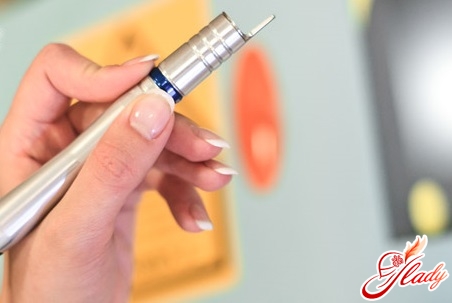 Stroke.This disease has long been a real scourge of modern humanity. Scientists are alarmed by the fact that stroke is rapidly "getting younger" - these days it can overtake even quite young people aged 3-40. Severe headache, nausea, vomiting. Loss of consciousness - this is how a stroke makes itself known. And it is almost impossible to predict when, where and who it will overtake next time. That is why all adults need to know the signs of a stroke, the reasons for its development and how to provide first aid to a sick person. After all, a person's life often depends on the competent and prompt actions of those people who were nearby at the time of the stroke.
Stroke.This disease has long been a real scourge of modern humanity. Scientists are alarmed by the fact that stroke is rapidly "getting younger" - these days it can overtake even quite young people aged 3-40. Severe headache, nausea, vomiting. Loss of consciousness - this is how a stroke makes itself known. And it is almost impossible to predict when, where and who it will overtake next time. That is why all adults need to know the signs of a stroke, the reasons for its development and how to provide first aid to a sick person. After all, a person's life often depends on the competent and prompt actions of those people who were nearby at the time of the stroke.
Causes of Stroke
The development of a stroke occurs as a result of a suddenchanges in the normal process of blood circulation in the human brain. If the blood vessels in the brain are healthy, the blood does not clot in them. However, if a person suffers from a number of certain diseases, such as atherosclerosis of the blood vessels in the brain, specific plaques form on the walls of the vessels, which lead to the walls of the vessels becoming brittle and the vessels themselves becoming narrower. As a rule, it is in people with such pathological changes in the blood vessels in the brain that the normal process of blood circulation in the brain is disrupted, resulting in a stroke. If a stroke occurs against the background of a dynamic disorder of blood circulation in the blood vessels in the brain, it is the least dangerous. In this case, the disorders occur quite quickly, but also disappear quickly, which is why they are called dynamic. One of the striking examples of such a disorder is a short-term sharp narrowing of the blood vessels in the brain, caused by a significant increase in blood pressure. The second most common cause of dynamic cerebrovascular accident is a sharp drop in blood pressure, but there is no narrowing of the cerebral vessels. This phenomenon often occurs if the patient has weakened heart function, resulting in a flow of blood from the brain to the internal organs of a person. Another common cause of stroke are such disorders as embolism and thrombosis. For example, if a thrombus blocks a vessel, blood through it stops flowing to the area of the brain for which the affected vessel is responsible for blood circulation. As a result, this area of the brain dies very quickly. Thrombosis, as a rule, most often develops in those people who suffer from pathological changes in the walls of blood vessels due to atherosclerosis, changes in the composition and consistency of the blood, slowing of blood flow, and constantly low blood pressure. Embolism is also a type of blockage of the blood vessels of the brain. Blood vessels can become clogged with blood clots that form not in the brain, but in distant organs of the body. Most often, a blood clot gets into the brain from the surface of heart valves that have been altered by various diseases. If a stroke is caused by a blood clot, its symptoms do not appear instantly, but increase slowly but steadily. At first, a sick person may complain of a feeling of numbness in one or another arm or leg, then his speech becomes slurred, the person becomes pale, and loses the ability to orient himself in time and space. Relatives of those sick people who have a disease such as atherosclerosis of the cerebral vessels should be especially attentive when such symptoms appear. In no case should you apply cold to the sick person's head when such symptoms appear, and especially not lift it. It is permissible to carry a sick person only in a horizontal position.
Symptoms of hemorrhage in stroke
Another reason that violates blood circulation inголовном мозге, является кровоизлияние в сам мозг или его оболочки. Риск возникновения кровоизлияния в мозг особо велик у тех людей, которые страдают гипертонической болезнью либо атеросклерозом. Происходит это вследствие того, что из-за болезни стенки кровеносных сосудов истончаются, становятся очень легкими. И любое повышение артериального давления приводит к тому, что сосуды просто напросто разрываются, либо кровь просачивается сквозь стенки сосудов. В том случае, если инсульт произошел из-за кровоизлияния в головной мозг, симптомы инсульта будут следующими: больной человек неожиданно теряет сознание и падает. Лицо приобретает багровый оттенок, достаточно сильно отекает, губы становятся синюшными. На шее четко проступают вздувшиеся пульсирующие вены, а дыхание становится крайне тяжелым и шумным, четко прослушиваются свистящие хрипы. В том случае, если работа отдельных участков головного мозга нарушена, у больного человека может развиться левосторонний или правосторонний паралич тела. Иногда к нему присоединяется частичная или полная потеря чувствительности кожи, а также частичное или полное расстройство речи. Эти процессы могут быть как обратимые, так и необратимые. В зависимости от тяжести поражения. В первую очередь больному человеку необходимо обеспечить полный покой и тишину. Старайтесь не перемещать больного человека – если есть такая возможность, его необходимо оставить в том же помещении, где у него и произошел инсульт. Все посторонние люди. Кроме тех, кто оказывает помощь. Должны немедленно покинуть помещение. Немедленно расстегните воротник и пояс больного человека, освободите его от всей тесной одежды. Откройте двери и окна, чтобы обеспечить максимальный приток кислорода. Обязательно проверьте, нет ли у него зубных протезов, и если есть – вытащите их из ротовой полости. Постарайтесь до приезда бригады «скорой помощи» максимально приглушить свет – яркий свет создает больному человеку сильный дискомфорт. Единственный случай инсульта, при котором необходимо приподнять голову больного человека – это кровоизлияние в мозг. Как уже говорилось, он очень легко узнаваем даже человеком, не имеющим медицинского образования – лицо у подобного больного краснеет и отекает. В данном случае необходимо подложить по плечи и голову больного человека подушку, а при их отсутствии – свернутую одежду. Если в пределах досягаемости есть лед или холодная вода, необходимо приложить их к голове, сначала на 10 минут к ее левой части, затем еще на 10 минут к правой. К ногам же больного человека желательно приложить либо грелки, либо бутылки с горячей водой. В крайнем случае, их необходимо непрерывно растирать. Эта мера поможет увеличить прилив крови к ногам и, соответственно, уменьшить прилив к головному мозгу. Однако будьте осторожны с грелками – чувствительность кожи, как правило, в значительной степени понижена, поэтому необходимо избегать ожогов. Будьте внимательны при оказании первой помощи – как вы уже убедились сами, заболевание вызывается различными причинами, инсульт признаки имеет также разные, поэтому и первая помощь во всех случаях оказывается по-разному. И те меры, которые жизненно необходимы для одного больного человека, для другого могут стать смертельно опасными. И если уж вы совсем растерялись в стрессовой ситуации, лучше вообще ничего не предпринимайте. Ограничьтесь общими мерами: вызовите бригаду «скорой помощи», бережно уложите больного человека, расстегните одежду и дожидайтесь приезда скорой помощи. Во время вызова врачей четко опишите, какие признаки инсульта у человека имеются – так диспетчер пришлет именно врачей – реаниматологов.
The consequences of a stroke
Despite the high level of modernmedicine, as well as the level of study, a stroke does not cease to present doctors with various surprises in the form of its consequences. It is impossible to predict the consequences of even those strokes that are caused by the same reasons - they will be different for different people. However, there are several common features in all patients who have had a stroke. The easiest to get off are those patients who have had a stroke that developed as a result of dynamic circulatory disorders in the brain - for them, a stroke passes without any special consequences. In the same case, if a stroke was a consequence of an embolism or thrombosis, with a very high degree of probability, the patient will have paralysis of the arms and legs for a long time. In the event that the hemorrhage occurred in the right hemisphere of the brain, the work of the right arm and leg is paralyzed. If the left hemisphere is affected, in addition to the damage to the right arm and leg, speech is significantly affected. This happens because it is in the left hemisphere of the brain that the speech centers are located, responsible for a person's ability to speak. Moreover, sometimes a person not only loses the ability to pronounce words, but also completely stops perceiving speech, in particular words addressed to him.
Recovery after a stroke
However, a stroke is not a death sentence.With the help of doctors and loved ones, a sick person has every chance of returning to a full lifestyle. In most cases, the functions of the body lost due to a stroke can be restored almost in full. Cerebral circulation is restored, albeit not through the damaged main vessels, but through a network of additional lateral vessels. If part of the brain is atrophied, their function is usually taken over by neighboring healthy parts of the brain. This is how the body recovers after a stroke. However, the relatives of a sick person need to be patient - recovery takes time. And it is impossible to say for sure how long it will take. The recovery process can take a month, two, or even a year. Everything depends on the degree of brain damage and the individual characteristics of the body. And the help of relatives can significantly speed up the recovery of a sick person. First of all, it is necessary to pay close attention to the diet of a sick person. Proper nutrition plays a very important role in a person's recovery. Nutritionists recommend including the following products in the diet of a person who has suffered a stroke:
- Dairy products: cottage cheese, milk, kefir, yoghurts.
- Various cereals: buckwheat, oatmeal, millet.
- Wiped fruit and hair.
- Boiled meat of low-fat varieties.
- Low-fat fish.
Multivitamin complexes would also be useful –consult your doctor about what to give preference to. Pay attention to the amount of food - the portions should not be too large - after all, the person spends all his time lying down, he does not need extra weight. The same applies to liquid - a sick person should drink no more than 5 - 6 glasses of liquid per day. Make sure that the sick person has regular bowel movements. If the sick person has constipation, remember that such products as prunes, fruits, kefir and yogurt significantly increase intestinal peristalsis. Do not forget about the moral state of the sick person. Talk to him, read newspapers, let him watch TV. All this will allow the sick person not to feel cut off from life. And if the sick person gets enough impressions during the day, his sleep will be sound.
Prevention of stroke
In about half of all stroke cases, itdevelopment could have been prevented if the necessary measures had been taken in a timely manner. For example, very often the cause of stroke is excessively thick blood. Almost none of the sick people know about this feature. But if they had timely preventive examinations by a doctor and had their blood tested, they would have known about this fact. It is quite easy to prevent the development of stroke with excessively thick blood. It is enough to drink half a tablet of acetylsalicylic acid every day before going to bed, which thins the blood very well. The tablet must be washed down with milk to prevent irritation of the gastric mucosa. If a person suffers from atherosclerosis of the brain, he should also receive the necessary treatment, which will help to avoid the development of a stroke. In addition, a person should be under constant supervision of doctors. Also, in no case should you ignore an increase in blood pressure. Of course, a one-time increase in pressure is not dangerous. However, hypertension is already a rather serious signal of danger. And, of course, the most important prevention of stroke, and not only stroke, is a healthy lifestyle. Liters of coffee, cigarettes, alcoholic drinks and lack of sleep are a sure way to say goodbye to health. We recommend reading:









